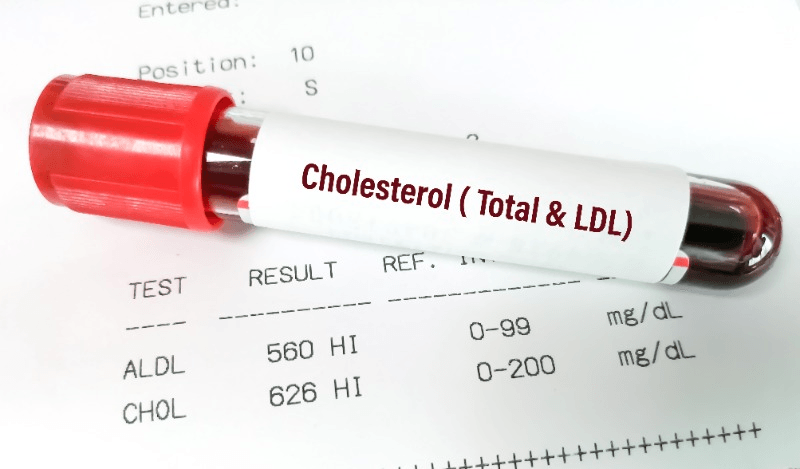Key Takeaways
- Be cautious when taking alfalfa alongside blood thinning medications and other herbs, as it may interact and affect their effectiveness due to drug interactions.
- Monitor the impact of alfalfa on diabetic medications and drug interactions, as it could alter their efficacy and blood sugar levels.
- Consult with healthcare professionals regarding the influence of alfalfa and plant compounds on hormone-modulator medications to ensure optimal treatment outcomes.
- Exercise caution when combining alfalfa with anti-inflammatory drugs, as interactions may affect their effectiveness.
- Consider potential alterations in metabolism when using oral contraceptives alongside alfalfa and plant compounds, and seek medical advice if necessary.
- Be mindful of the risk of potassium overload when combining alfalfa with diuretics, and monitor potassium levels accordingly.
- Even though it is a nutritious addition to your diet, always be aware of interactions with alfalfa.
Interaction with Blood Thinning Medications
Alfalfa, when used in combination with blood thinning medications, has the potential to enhance their effects. This means that there is a risk of increased bleeding when alfalfa is combined with these medications. Therefore, it is crucial for individuals using both alfalfa and blood thinners to be closely monitored for clotting parameters. A study in the Journal of Clinical Pharmacology found that alfalfa can make anticoagulant drugs like warfarin work stronger, which can lead to more bleeding. The National Center for Complementary and Integrative Health says alfalfa’s high vitamin K content might mess up how blood-thinning medicines work. The warnings section on various medication labels also highlights this interaction between alfalfa and blood thinners. For instance, some pharmaceutical companies caution against combining their anticoagulant drugs with alfalfa due to potential interactions that could lead to adverse health outcomes. Healthcare providers and patients alike need to be aware of these interactions so that appropriate precautions can be taken. Patients should communicate openly with their healthcare providers about any herbal supplements or alfalfa roots they take alongside prescribed medications.Influence on Diabetic Medication Efficacy
Alfalfa’s potential impact on blood sugar levels can affect the efficacy of diabetic medications. When combined, alfalfa may interact with diabetic medications, necessitating caution due to these potential interactions. Scientific evidence regarding this interaction is limited; however, it is advisable to exercise prudence when using both simultaneously. It’s important to check your blood sugar often if you take alfalfa with diabetes medicine. This helps you see how your blood sugar levels change when you use them together. Checking your blood sugar can help you know if your diabetes medicine is working well with the alfalfa. In studies involving diabetic mice, some evidence suggests that alfalfa may impact blood sugar regulation and insulin sensitivity; however, further research is needed to establish conclusive findings in human subjects. Therefore, individuals with diabetes should consult healthcare professionals to view alfalfa.Effects on Hormone Modulator Medications
When combining alfalfa with hormone-modulator medications, there is a potential for adverse effects. Alfalfa contains compounds that may interfere with the effectiveness of hormone modulators, leading to altered hormone levels in the body. This interference can be particularly significant for individuals using hormone estrogen modulators. It’s important to talk to a doctor before using alfalfa with hormone-modulator meds. Doctors can give personalized advice based on your medical history and meds and watch for any side effects or hormone changes when you use them together. For instance, women experiencing menopausal symptoms who are prescribed hormone replacement therapy should exercise caution when consuming alfalfa supplements or products due to its potential impact on hormonal levels. Alfalfa has many good things for your health, like nutrients and antioxidants. But if you’re taking hormone-modulator meds, talk to your doctor before using alfalfa to avoid any bad effects.Interaction with Anti-inflammatory Drugs
When considering the use of alfalfa along with anti-inflammatory drugs, it’s crucial to be aware of potential interactions. Combining alfalfa with medications may heighten the risk of side effects or diminish their effectiveness. Research suggests that alfalfa contains plant compounds that could interfere with the action of anti-inflammatory drugs, impacting their therapeutic outcomes. It’s important to talk to your doctor before taking alfalfa with anti-inflammatory meds, especially if you’re being treated for rheumatoid arthritis or lupus. Alfalfa could affect how your body makes antibodies and how well your treatment works. Studies on animals suggest that taking a lot of alfalfa might change how your body processes drugs, which could cause problems when taken with certain medications. Healthcare professionals must consider these interactions when advising patients to use dietary supplements like alfalfa while undergoing medical treatment for inflammatory conditions such as arthritis or psoriasis.Potential Alteration of Metabolism for Oral Contraceptives
Alfalfa, containing phytoestrogens, has the potential to impact the metabolism of oral contraceptives. When combined with alfalfa, there is a moderate risk of reduced effectiveness of oral contraceptives due to its estrogen-like properties. Studies have indicated that phytoestrogens present in alfalfa can interfere with the efficacy of oral contraceptives by reducing their levels in the body. For women taking oral contraceptives and considering using alfalfa supplements or products containing alfalfa, it is crucial to be aware of this interaction. Healthcare providers should advise on alternative contraception methods when incorporating alfalfa alongside oral contraceptives to ensure effective birth control and prevent unintended pregnancy. It’s important for people using hormonal birth control to know that some foods and supplements, like methoxsalen in alfalfa, can make birth control less effective. Knowing this helps them make smart choices about their birth control while eating foods with substances like phytoestrogens.Risk of Potassium Overload with Diuretics
 When alfalfa is combined with diuretics, there is a potential risk of potassium overload. This occurs due to the diuretic’s ability to increase the excretion of bodily fluids and electrolytes, including potassium. The simultaneous use of alfalfa and potassium can further elevate potassium levels, leading to a condition known as hyperkalemia.
Hyperkalemia is characterized by elevated levels of potassium in the blood, which can adversely affect heart function and overall health. It is crucial for individuals using both alfalfa and diuretics to monitor their potassium levels regularly. This monitoring helps healthcare providers assess whether adjustments are necessary to prevent excessive potassium accumulation in the body.
The risk associated with combining alfalfa and diuretics underscores the importance of consulting with a healthcare professional before incorporating alfalfa into one’s regimen, especially if diuretics are part of an individual’s medication routine. Healthcare providers can offer personalized guidance based on an individual’s medical history and current medications.
When alfalfa is combined with diuretics, there is a potential risk of potassium overload. This occurs due to the diuretic’s ability to increase the excretion of bodily fluids and electrolytes, including potassium. The simultaneous use of alfalfa and potassium can further elevate potassium levels, leading to a condition known as hyperkalemia.
Hyperkalemia is characterized by elevated levels of potassium in the blood, which can adversely affect heart function and overall health. It is crucial for individuals using both alfalfa and diuretics to monitor their potassium levels regularly. This monitoring helps healthcare providers assess whether adjustments are necessary to prevent excessive potassium accumulation in the body.
The risk associated with combining alfalfa and diuretics underscores the importance of consulting with a healthcare professional before incorporating alfalfa into one’s regimen, especially if diuretics are part of an individual’s medication routine. Healthcare providers can offer personalized guidance based on an individual’s medical history and current medications.
Interference with Antibiotics Absorption
When alfalfa is taken concurrently with antibiotics, there is a potential interference in the absorption of antibiotics. This can lead to reduced effectiveness of the antibiotics, impacting their ability to combat infections caused by bacteria like Escherichia coli or Salmonella. The sprout saponins present in alfalfa have been found to interfere with intestinal morphology and may affect the absorption of antibiotics. For instance, studies have shown that alfalfa saponins can inhibit the growth of certain bacteria, such as Listeria and Salmonella enterica. Individuals must seek guidance from healthcare providers before combining alfalfa with antibiotics, especially when dealing with serious bacterial infections. Healthcare professionals can provide personalized advice based on specific antibiotic regimens and individual health conditions. One case study observed that radiation-sterilized alfalfa roots were linked to an outbreak of salmonellosis due to their potential contamination during cultivation or processing. This further emphasizes how interactions between alfalfa and medications, including antibiotics, can impact health outcomes.Impact on Immune System Drugs
It is important to acknowledge the potential for interactions when considering alfalfa alongside immune system medications. Alfalfa may interact with immune system drugs, leading to altered immune responses or compromised drug efficacy. This could have implications for individuals with autoimmune disorders such as systemic lupus erythematosus or those undergoing treatment for cancer. It is crucial to consult a healthcare provider before combining alfalfa with immune system drugs. The healthcare professional can offer personalized advice based on the individual’s health status and specific medication regimen. They can provide insights into potential risks and benefits associated with this combination. Studies have found that alfalfa has stuff that can affect the immune system. So, talking to a doctor before using it with immune system meds is important. Talking to a doctor can help people make smart choices about their health.Enhanced Sedative Effects with CNS Depressants
When combining alfalfa with central nervous system (CNS) depressants, there is a potential for increased sedative effects. Research by Stern et al. has suggested that the simultaneous use of alfalfa and CNS depressant medications may heighten the risk of drowsiness or dizziness. This combination can lead to an amplified sedative impact on the body, potentially causing excessive sleepiness or reduced alertness. Be careful when using alfalfa and CNS depressant meds together because it can make the side effects stronger. If you take them both, talk to your doctor about how much to take or if there’s another treatment. Also, doctors should watch you closely for any problems.Possible Interaction with Cholesterol-Lowering Drugs
 When considering potential interactions, it’s important to note the possible interaction between alfalfa and cholesterol-lowering drugs. Combining alfalfa with these medications may lead to altered cholesterol-lowering effects or an increased risk of side effects. This is significant for individuals managing high cholesterol levels as it could impact their treatment outcomes.
Alfalfa contains compounds that might interfere with cholesterol absorption in the body, potentially affecting the efficacy of cholesterol-lowering medications. Some components in alfalfa may influence bile acid production and reduce atherosclerosis development by impacting low-density lipoprotein (LDL) levels.
Healthcare providers emphasize consulting them before using both substances simultaneously. Patients should seek professional advice to ensure they understand any potential risks associated with combining alfalfa and prescribed cholesterol-lowering drugs.
It’s crucial for individuals on medication for high cholesterol to be aware of how incorporating alfalfa into their routine could affect their treatment plan. Consulting healthcare professionals can provide personalized guidance based on individual health conditions and medication regimens.
When considering potential interactions, it’s important to note the possible interaction between alfalfa and cholesterol-lowering drugs. Combining alfalfa with these medications may lead to altered cholesterol-lowering effects or an increased risk of side effects. This is significant for individuals managing high cholesterol levels as it could impact their treatment outcomes.
Alfalfa contains compounds that might interfere with cholesterol absorption in the body, potentially affecting the efficacy of cholesterol-lowering medications. Some components in alfalfa may influence bile acid production and reduce atherosclerosis development by impacting low-density lipoprotein (LDL) levels.
Healthcare providers emphasize consulting them before using both substances simultaneously. Patients should seek professional advice to ensure they understand any potential risks associated with combining alfalfa and prescribed cholesterol-lowering drugs.
It’s crucial for individuals on medication for high cholesterol to be aware of how incorporating alfalfa into their routine could affect their treatment plan. Consulting healthcare professionals can provide personalized guidance based on individual health conditions and medication regimens.
Altered Thyroid Hormone Levels with Thyroid Medications
When combining alfalfa with thyroid medications, there is a potential for altered thyroid hormone levels in individuals. Alfalfa contains compounds known as isoflavones, which may interfere with the body’s ability to effectively absorb and utilize synthetic thyroid hormones. This interference can lead to changes in thyroid function and hormone levels. It’s really important for people taking alfalfa and thyroid meds to monitor their thyroid hormone levels. They need to work closely with their healthcare provider to ensure any hormone level changes are noticed and handled properly. They need to talk openly with their healthcare providers about using alfalfa supplements. In one study published by the National Center for Biotechnology Information, researchers found that certain isoflavones present in alfalfa had an inhibitory effect on an enzyme involved in the metabolism of synthetic thyroid hormones. This inhibition could impact the effectiveness of thyroid medications when combined with alfalfa. It’s vital for individuals who rely on synthetic thyroid hormones to be aware of the potential interactions between alfalfa and these medications. By staying informed about these interactions, they can work alongside their healthcare providers to monitor their thyroid hormone levels effectively and make necessary adjustments to their treatment plans.Are There Any Potential Health Benefits of Alfalfa for Humans?
Alfalfa is rich in nutrients and has been linked to various potential health benefits for humans. Research suggests that the health benefits of alfalfa may include lowering cholesterol levels, reducing inflammation, and improving blood sugar control. Additionally, it is also believed to have antioxidant and anticancer properties.

